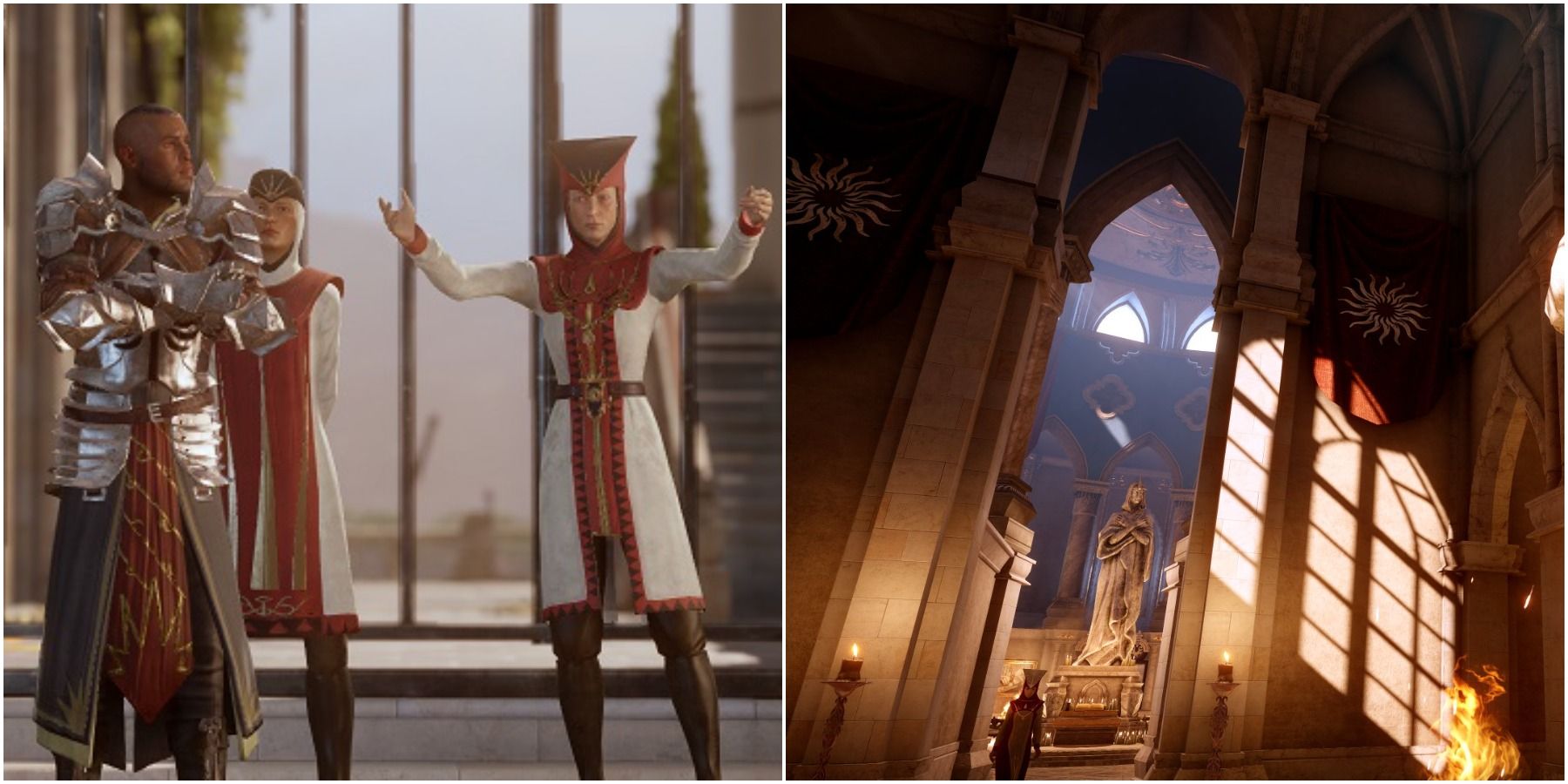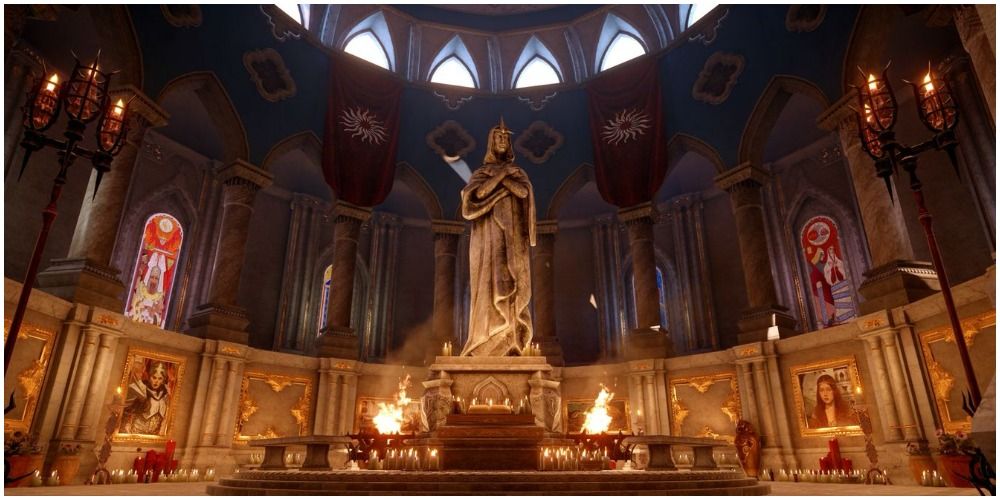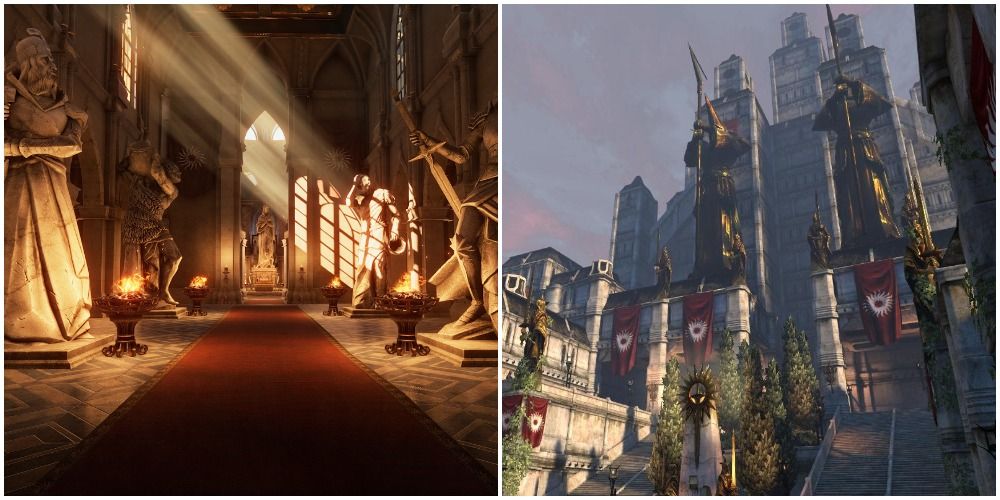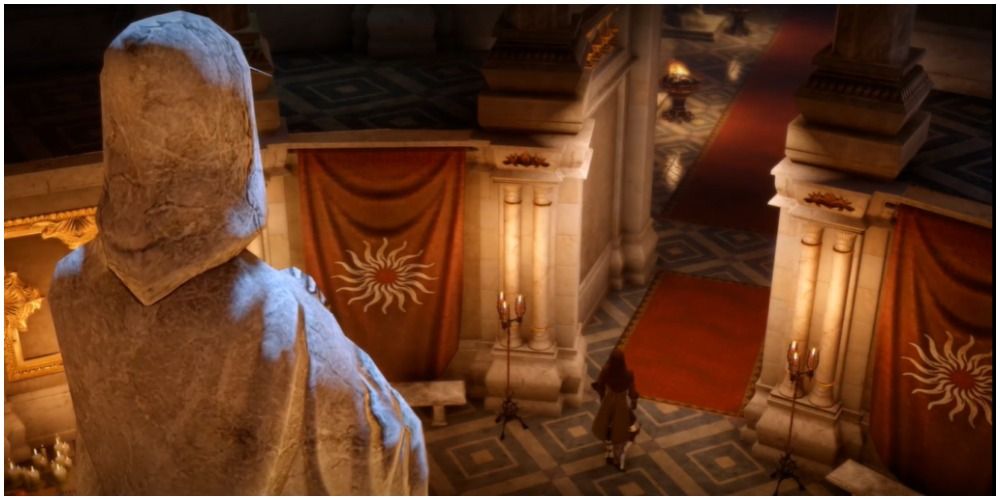The Chantry is the dominant religion of Thedas in Dragon Age. Its teachings are based on the Chant of Light, which was written by the religion's prophet, Andraste. Those within the Chantry believe in the Maker, a single god who created spirits, mortals, the Fade, and the physical world. The Dragon Age religion was founded by the first emperor of Orlais, Kordillus Drakon. All who follow the Chantry are known as Andrastians.
Within the Orlesian Chantry is a hierarchy starting from the Lay Sisters and Brothers and works up to the Divine. There are many ranks within the hierarchy, and most are made up of human women, as the Chantry believes that men are more vulnerable to passion and anger and that races other than humans are further from the Maker.
The Low Ranks
At the bottom of the Chantry hierarchy are the Lay Brothers and Sisters. They are not an initiate or in the priesthood, but live and work in the Chantry all the same. They do not have to take vows, but just affirm that they believe in the Maker, the Chant of Light, and Andraste. A lot of those in this group were taken in by the Chantry due to being orphans or having difficult lives that made them have to go into seclusion.
Just above Lay Brothers and Sisters and the Brothers and Sisters, whose duties include a wide range of tasks from making sure meals get delivered to managing lyrium storehouses. They take care of the faithful and are split between three groups: clerics, affirmed, and initiates. Initiates can train to become templars or delve into more academic ventures, while the clerics are known as the scholars of the Chantry and oversee Chantry archives. They preserve knowledge and can be found often in libraries. At a certain age, clerics can become known as "elders."
The High Ranks
The highest position a man can get in the Chantry is High Chancellor. In comparison to the clergy, the position may be considered low, but these are the men who actually get to be in the Divine's inner circle. They get to deliver her words around Thedas and even advise her on certain topics. It is a very special position for a man, as most men involved with the Chantry are usually limited to just becoming Brothers or templars unless going to Tevinter.
Above Brothers and Sisters are Mothers, and they oversee the ranks below them. Mothers tend to focus on the spiritual well-being of their people. If a Mother has leadership over a Chantry, she gets the title of "Revered Mother." In charge of a Chantry, such women tend to collect donations to help the poor and to care for the sick. Both a Mother and Revered Mother are often addressed as "Your Reverence." They also have the power to officiate weddings and dispense lyrium to the Templar Order.
The title above Revered Mother is Grand Cleric. These women get to control multiple temples within a region or city. They are the ones who elect the Divine, and Divines are usually selected from among the Grand Clerics. The women are required to sometimes travel to Val Royeaux for important Chantry meetings and decisions. They are the people with the power to invoke a Right of Annulment which can purge an entire Circle of Magi if they are deemed irredeemable. Grand Clerics are usually addressed as "Your Grace."
The Divine
The Divine herself is a single woman who is at the top of the Chantry hierarchy. She has the power to declare Exalted Marches, which are religious crusades that send armies against groups the Chantry deems heretical. She also gets to name each Age, such as the Exalted Age, Towers Age, and Dragon Age. In terms of the Circle of Magi, she can award mages the title of Senior Enchanter. In the early days of the Chantry, the Divine was seen as a "warrior-priest" position, as the first Divine ever was a female general who worked under Emperor Drakon of Orlais.
When a woman becomes Divine, she gives up her name for a new one. Common Divine names have included Justinia, Amara, Beatrix, and Theodosia. In history, if a Divine becomes too senile to make coherent decisions for the Chantry, her role becomes purely ceremonial. Divines keep their positions until death, though they often do name those they hope to succeed their position after they pass away.
Dragon Age 4 is in development.




